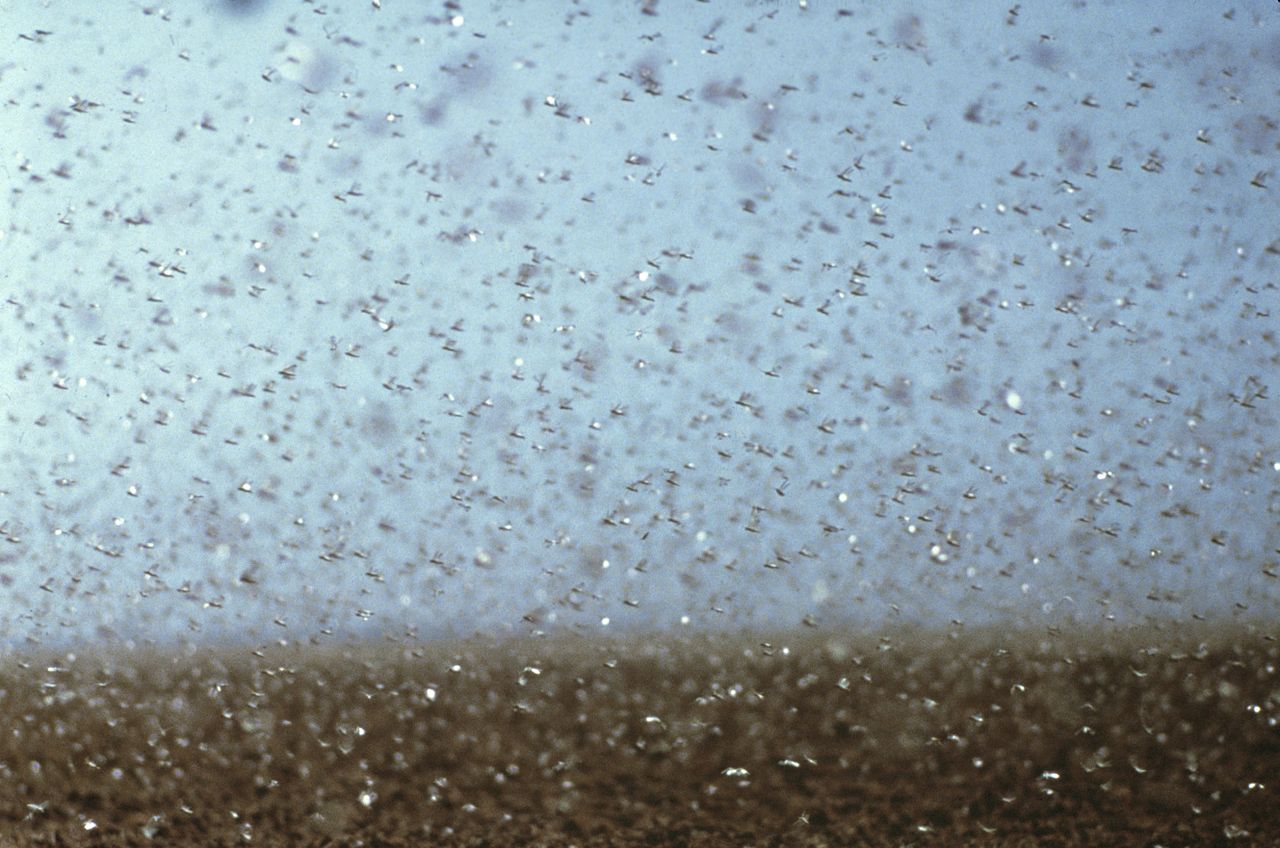“We hope countries around the world will help us deal with the situation, otherwise civilians will just starve” – The last 70 years
An unprecedented locust blow to East African residents just months after a massive swarm caused agricultural damage in Somalia, Ethiopia, and Kenya. Experts say the approaching swarm is 20 times larger than seen earlier this year and is probably the largest in the last 70 years.
United Nations officials say the approaching locust swarm poses a threat to the economies of several countries in the region and their ability to produce food. This locust is capable of consuming reservoirs that can feed 35,000 people.
Uganda authorities have expressed concern over two swarms of locusts that arrived in Kenya last week, a neighbor from the east. the agriculture minister said: “This is an active and destructive swarm that is making its way west, while the state is in quarantine because of the coronavirus outbreak. We are concerned that we will not have the necessary materials to destroy it.”
The swarms of African locusts usually form in the eastern continent after the rainy season earlier this year. Later, they spread throughout the states of the region and eat almost all of the greenery that gets in their way.
Locust swarms have grown in recent years, with the last swarm hit the eastern continent in February been the largest observed since 1950. Now, residents of the area are preparing for a swarm of 20 times the size seen two months ago. Authorities in the area usually deal with locusts by dispersing insecticides from the air using spray jets, but these materials are very difficult to obtain in recent times following the outbreak of the COVID-19 virus.
Christine Apolot, Uganda’s mayor of Kumi, says the situation is discouraging the area’s residents, who have had to deal with floods in recent times. “Our concern right now is that the situation is going to affect residents’ ability to obtain food,” she said. “The locust swarm is making its way to the north of the country when residents are forced to stay in their homes because of the outbreak of the Coronavirus. This blow may plague our economy. We hope our neighbors and countries around the world will help us deal with the situation, otherwise civilians will just starve.”




